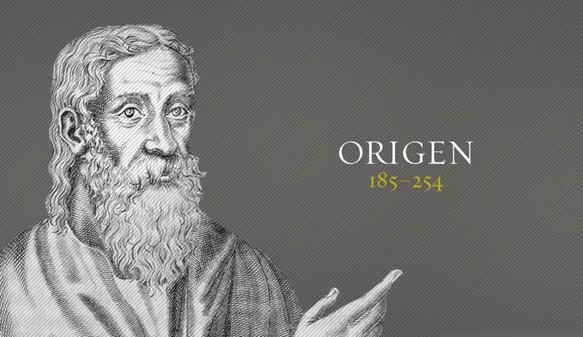He charted the path to the synthesis of Christianity and classical philosophy: Who is Origen?
In his contributions to Christian theology, Origen made a concerted effort to fuse Christianity with Greek philosophy. He had great faith in Plato because he saw in him a version of the trinity belief.

The second important philosopher of the golden age of patristic philosophy is Origen (185-254), known for his commentaries on the Bible and his first work in the field of systematic theology. Origen, who became famous not only as a theologian but also for his philosophy and deep knowledge of Greek philosophy, explained the basic beliefs or dogmas of Christianity, such as the holy trinity, Jesus' sacrifice to save people, God's grace and incarnation, with a philosophical view and with both reason and thought. While pointing out the necessity and importance of systematic explanation in the light of faith, he took serious steps towards the synthesis of Christianity and classical philosophy.
Origen of Alexandria (c. 185 – c. 253), also known as Origen Adamantius, was an early Christian scholar, ascetic, and theologian who was born and spent the first half of his career in Alexandria. He was a prolific writer who wrote roughly 2,000 treatises in multiple branches of theology, including textual criticism, biblical exegesis and hermeneutics, homiletics, and spirituality. He was one of the most influential and controversial figures in early Christian theology, apologetics, and asceticism. He has been described as "the greatest genius the early church ever produced".
In his contributions to Christian theology, Origen made a concerted effort to fuse Christianity with Greek philosophy. He had great faith in Plato because he saw in him a version of the trinity belief.
As a matter of fact, Origen interpreted the trinity of the Father, the Son, and the Holy Spirit with an evolutionist doctrine, under the influence of Platonic and Neo-Platonic thought. Indeed, Origen, who obtained the concepts, models, and arguments he used in his research almost entirely from the Stoic, Peripatetic, but especially Platonic schools of philosophy, believed that the Christian God was manifested in the form of three separate divine beings with certain predicates and certain roles. Of these three Gods, the Father was the absolutely simple, unaffected, immutable, absolute reality. God himself, the Father, was the highest source of being and goodness, having received nothing from any outside source. God the Son, who is characterized by many attributes such as Wisdom, Truth, and Life, owed his existence to the Father, and according to Origen, he had to take names such as Savior, Shepherd, and High Priest in the context of his relationship with the world. The Holy Spirit, who brought various spiritual gifts to intelligent beings, received his existence and goodness from the Father and his wisdom and intelligence from the Son.
According to Origen, God created the world and everything in it from nothing, not by giving shape to matter that had existed since eternity. Origen, who claimed that the Father created the Son, whose basic attribute is Wisdom, in eternity, created his plan, prototypes, and basic patterns within the general order of the temporal world as an expression of his power and goodness.
He claimed that the genera and species of everything that exists are found in the Son, who forms the main link between the many and the one. Origen's effort to give a philosophical basis to the Christian faith, however, sometimes led him to views contrary to the official teaching of the Church. Accordingly, he argued that God, who is one and completely spiritual, transcending truth and reason, essence, and existence, created the world not freely but by necessity of his nature. In other words, God, who is absolute goodness, could not be inert or inert because it is like goodness to extend.
Again, Origen, who differed from Plato and other Greek philosophers, who claimed that creation occurred when God gave form to eternal matter, in saying that God created everything that exists from nothing, on the one hand, stated that God is also the Creator of matter, a Creator in the full and real sense, and on the other hand, he is one of the creators of matter. He proposed that there were an infinite number of worlds, one after the other, all different from each other.
Origen, who accepted that evil and bad things existed in the world but claimed that this evil was not a positive thing but the lack of goodness and therefore God could not be held responsible for it, argued that God created all souls the same in terms of quality, but the sin before they came into existence caused them to be hidden in the body. According to him, souls have freedom of will in this world. Even so, since in his system, the ultimate and highest goal of all creatures is to return to God, all souls, and even the devil, will eventually return to God, after purifying ordeals, and atoning sufferings.
